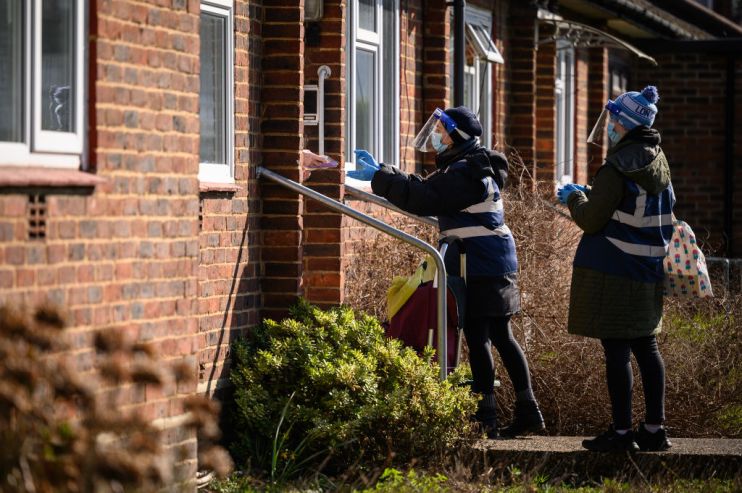Surge testing for South Africa Covid variant extended to Finchley, Barnet

Surge testing is set to take place in the London borough of Barnet after one further case of the South Africa Covid variant was detected.
Health officials will launch targeted testing for certain households in the Finchley area from tomorrow. People living in the N3 postcode and those who shop on the local high street will be asked to take extra tests.
Households will either receive a leaflet asking them to get a test from a specially deployed mobile testing unit, or be asked to complete a home kit by a door-to-door team.
Enhanced contact tracing will then be used for any individuals who test positive with the variant of concern, where officials retrospectively trace the possible route of transmission.
One confirmed case has of the South Africa variant has so far been identified in Barnet, the Department of Health and Social Care (DHSC) said in a statement. The individual is understood to be self-isolating and their contacts have been identified.
Genomic sequencing results have indicated that this South African variant case is not linked to the cluster identified in south London.
So far there have been 44 confirmed cases of the variant in Lambeth and Wandsworth, with a further 30 probable cases identified, according to DHSC.
Ruth Hutt, director of public health for Lambeth Council, said one of the clusters was picked up in a care home in the South London borough.
Extra testing was also stepped up in the London borough of Southwark this morning following the discovery of further cases of the South African variant, which is thought to be more transmissible than other Covid strains.
Dr Kevin Fenton, London regional director of Public Health England, said the new cases identified in south London were “significant”.
“It’s really important people in the local area play their part in stopping any further spread within the local community,” he said.
“PCR testing is now available for all and I would strongly encourage everyone in Southwark who is invited to take part to get tested, even if they don’t have any symptoms of coronavirus.”
The South African strain, also known as the B1351 variant, was first detected in Wandsworth in March. Contract tracers have said they believe the south London outbreak was sparked by a person travelling back from to the UK from Africa in February.
Documents seen by the BBC suggested that the person did self-isolate, and requested a home test after showing symptoms.
Jeremy Hunt, the former health secretary, however, said the outbreak indicated that the government must move faster in enforcing travel restrictions.
“[When] you have scares like what is happening in south London, you may need to move more countries onto the red list — you may need to do it more quickly”, he said.
Travellers returning to the UK from countries on the government’s red list must quarantine in a hotel for 10 days.
There are currently 39 countries on the red list, including South Africa and Brazil, where new variants of concern were first identified.